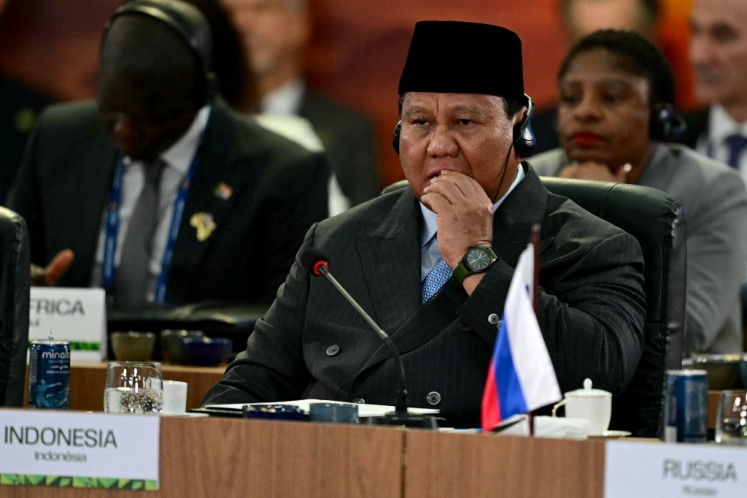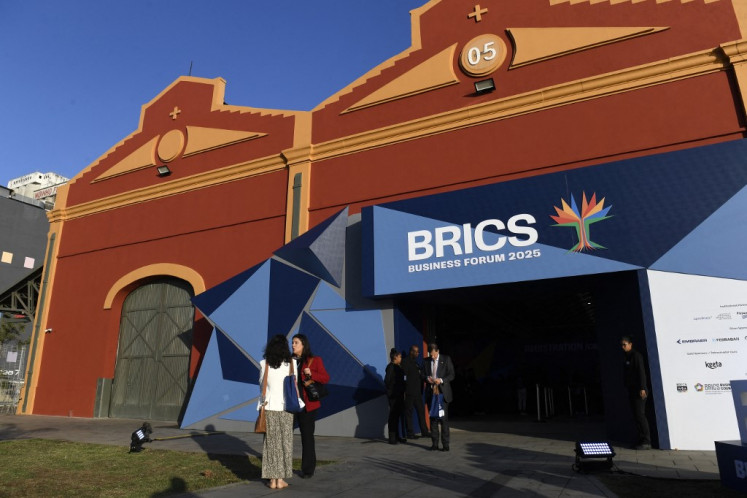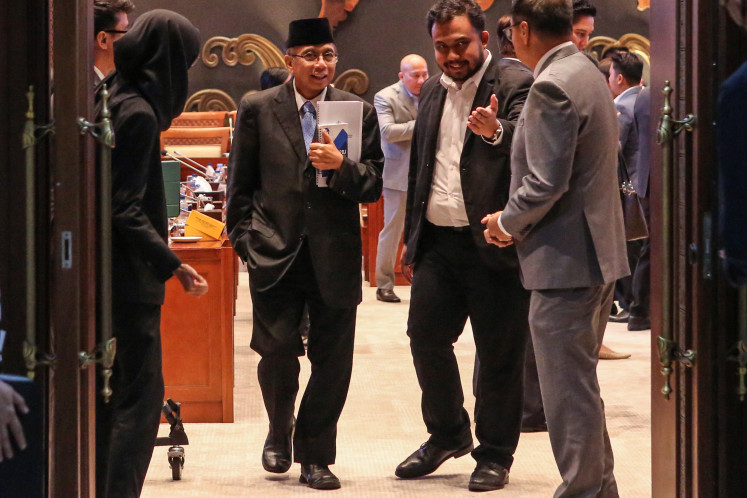Popular Reads
Top Results
Can't find what you're looking for?
View all search resultsPopular Reads
Top Results
Can't find what you're looking for?
View all search resultsJokowi, Prabowo ‘barely scratch surface’
The second presidential debate between President Joko “Jokowi” Widodo and Gerindra Party chairman Prabowo Subianto was full of jabs and counterjabs between the incumbent and challenger on the topics of infrastructure, food security, natural resources, energy and the environment
Change text size
Gift Premium Articles
to Anyone
The second presidential debate between President Joko “Jokowi” Widodo and Gerindra Party chairman Prabowo Subianto was full of jabs and counterjabs between the incumbent and challenger on the topics of infrastructure, food security, natural resources, energy and the environment.
However, despite the two-and-a-half hour back-and-forth on issues that both camps have spent much of the campaign period focusing on, analysts and observers said the candidates barely scratched the surface and failed to mention important subjects such as renewable energy, climate change and sustainable development.
“There was not enough substantive discussion on many topics, including energy,” energy expert Fabby Tumiwa said at a discussion held by the Centre for Strategic and International Studies (CSIS) in Central Jakarta on Monday.
Fabby, who is the executive director of energy watchdog Institute for Essential Service Reform, said while both candidates seemed to agree that Indonesia should move away from fossil fuels, neither provided an in-depth look at the alternatives.
“Both Jokowi and Prabowo seemed to focus on biofuels made from plants such as palm oil, palm sugar and cassava,” he said. “But they did not consider the costs of doing so, considering the amount of land needed to produce enough biofuel to replace oil.”
He added that neither candidate proposed changes to the “outdated” National Energy Policy, which he said was too reliant on coal as a substitute for oil, while questioning why neither candidate mentioned renewable energy sources such solar and hydropower.
“In short, Jokowi mostly reflected on his past achievements and didn’t offer enough transformative ideas, while Prabowo focused too much on self-sufficiency without examining the costs,” he said.
University of Indonesia environmental economist Alin Halimatussadiah also questioned the lack of discussion on climate change.
“Neither candidate seemed to have a good understanding about environmental matters,” she said. “Maybe it was not brought up because it’s not a very populist issue.”
Environmentalists echoed her comments.
“This indicates that both candidates have yet to see climate change as well as national and global climate commitments as the bigger context underlying every topic talked about during the debate,” Madani Foundation for Sustainability researcher Anggalia Putri Permatasari said at a separate discussion.
Anggalia and other environmentalists expressed regret as they said climate change had become more important lately, especially following a recent report from the Intergovernmental Panel for Climate Change that urged countries to carry out additional measures to limit global warming to 1.5 degrees Celsius by 2030.
Moreover, Emmy Primadona of the environmental group Warsi Indonesian Conservation Community said both candidates had yet to talk much about the contribution and participation of the grass roots, especially indigenous people and forest communities, on mitigating the effects of climate change.
This concern was raised given Indonesia’s commitment to include indigenous communities and local wisdom in planning and implementing measures to cut carbon emissions, as written in the country’s nationally determined contributions.
The same lack of depth was apparent in the debate over food security and infrastructure.
Senior Institute for Development of Economics and Finance economist Bustanul Arifin said both candidates were too focused on achieving food self-sufficiency.
“Self-sufficiency is not the be-all end-all of food policy. We have spent too much time trying to achieve it,” he said. “There should be more discussion about nutrition and food security, considering the increase in lifestyle and diet-related diseases in the past few years.”
CSIS economic researcher Deni Friawan said both candidates should have focused more on what type of infrastructure should be built and how it should be funded rather than whether infrastructure was necessary.
“Prabowo touched on this a bit by saying ‘infrastructure should be for the people, not the people for infrastructure,’ but in substance, I do not see much difference between the policies he proposes from Jokowi’s,” he said.
Yulia Savitri contributed to the story from Palembang










